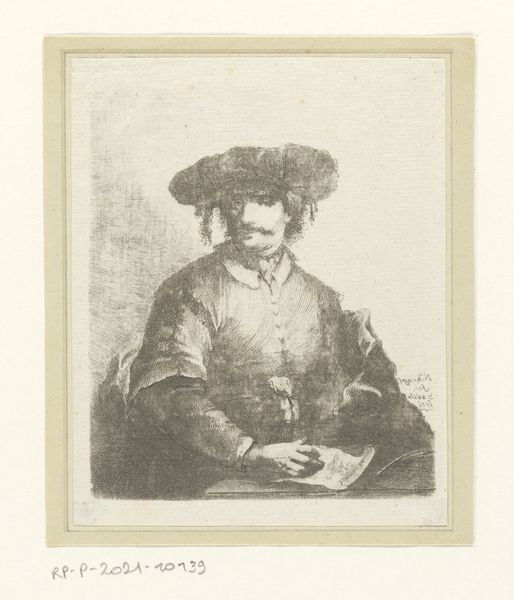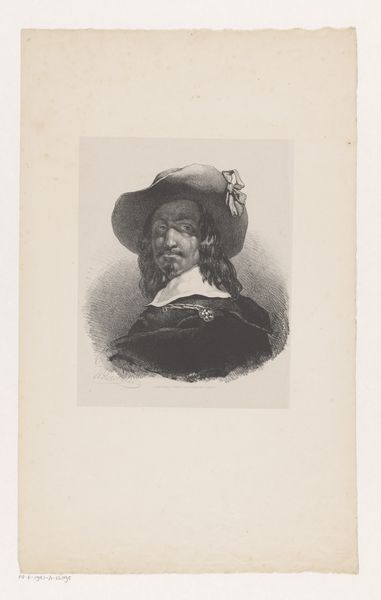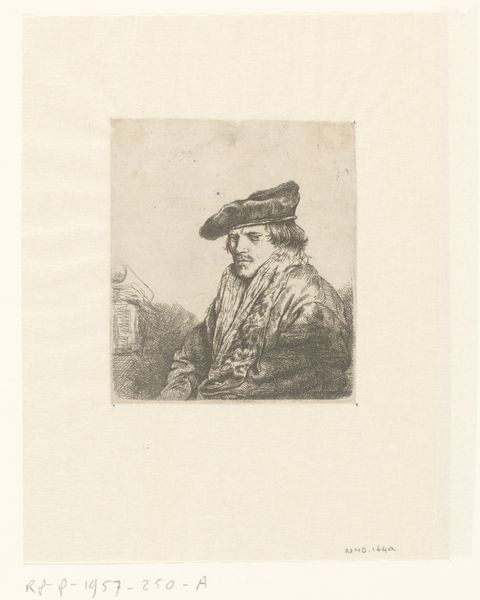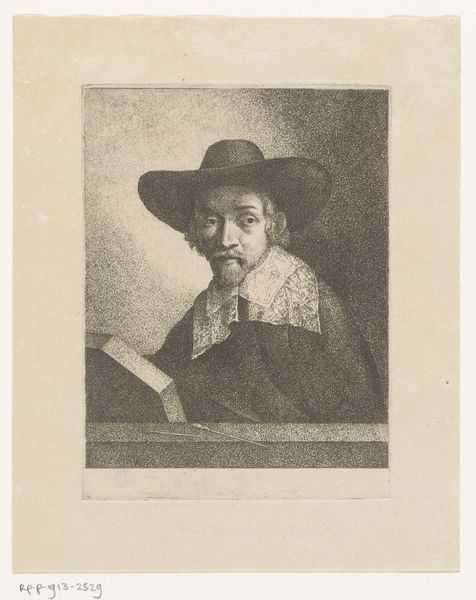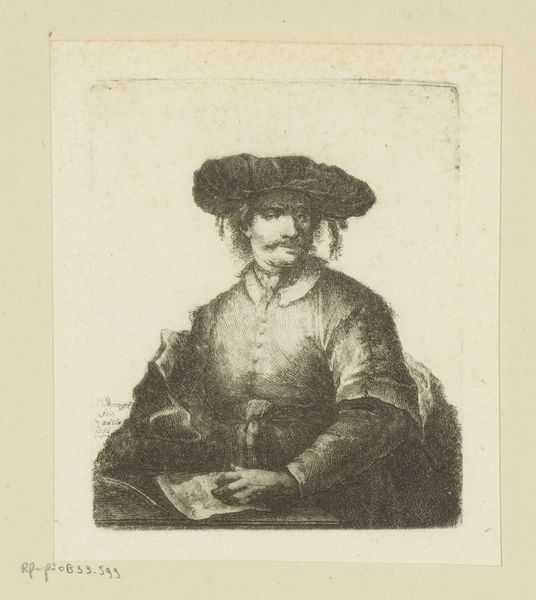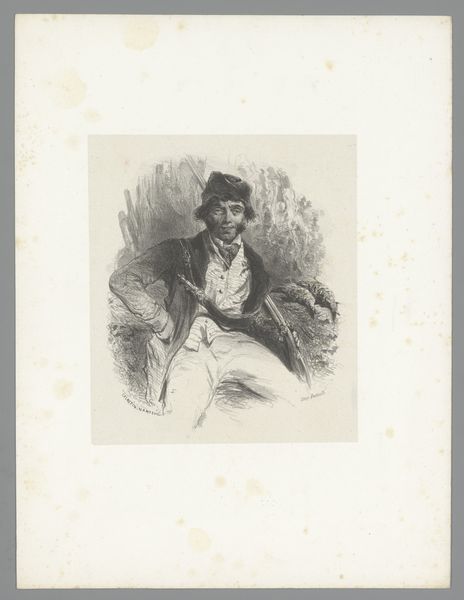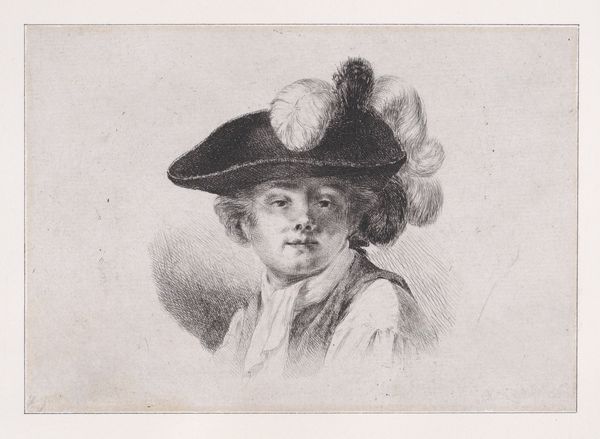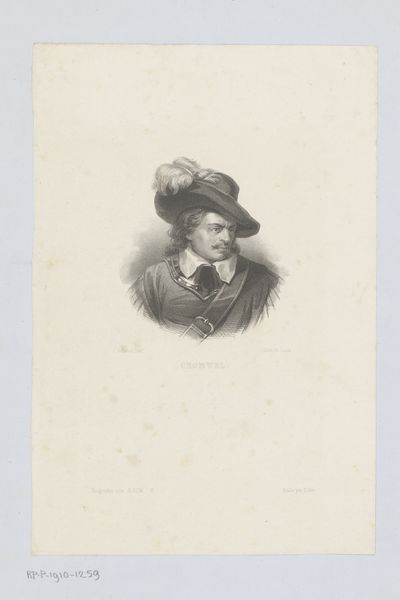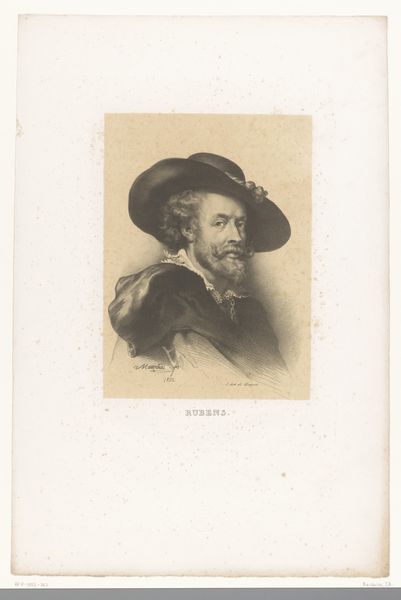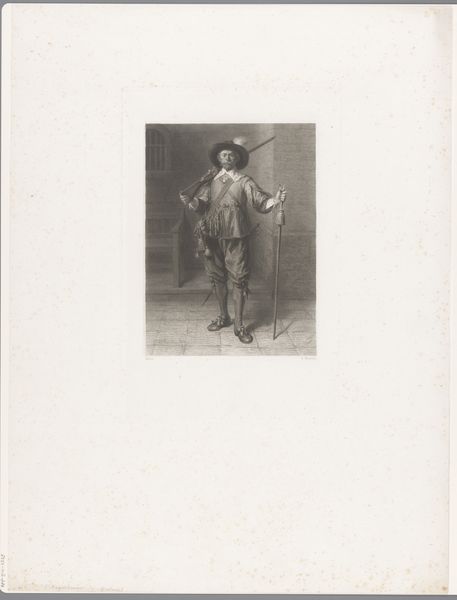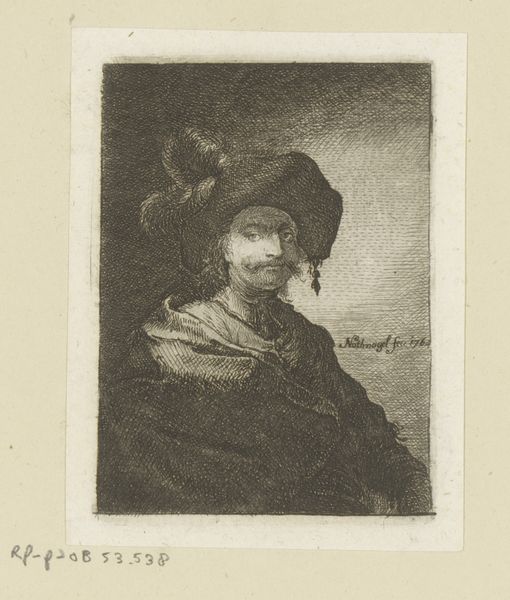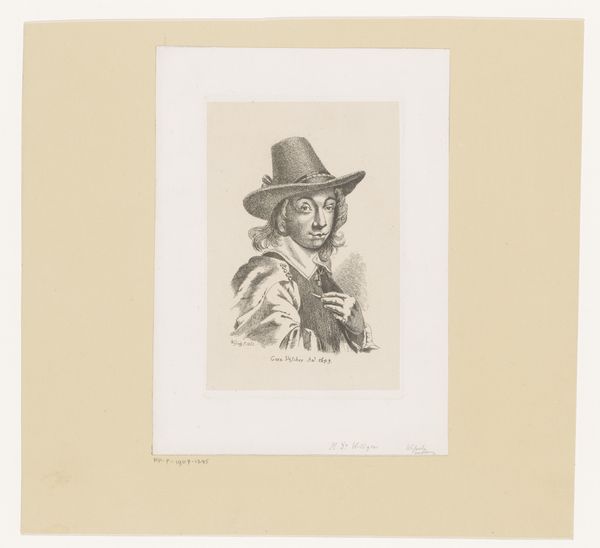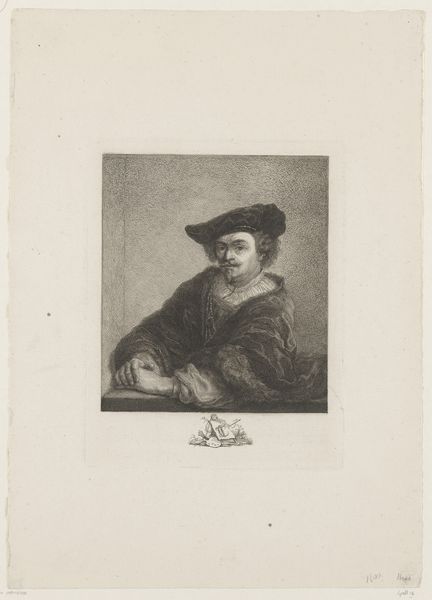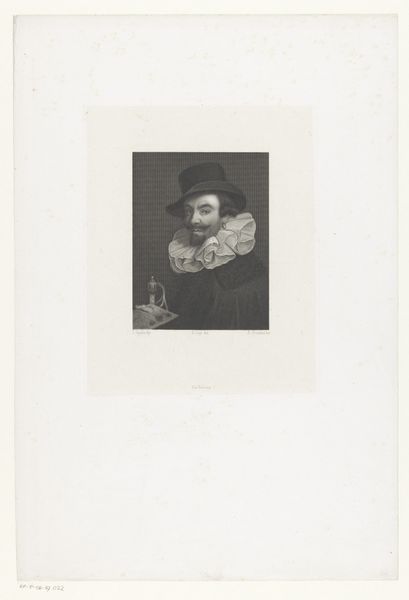
drawing, print, engraving
#
portrait
#
pencil drawn
#
drawing
#
light pencil work
# print
#
pencil sketch
#
pencil drawing
#
romanticism
#
pencil work
#
genre-painting
#
academic-art
#
engraving
Dimensions: height 156 mm, width 127 mm
Copyright: Rijks Museum: Open Domain
Jean Théodore Joseph Linnig created this portrait of an unknown man on a chair with etching around 1867. The print resembles 17th-century Dutch portraiture, with its focus on a single figure and its use of costume. Linnig was from Belgium, a nation that at the time was rediscovering and reinterpreting the art of the past. But why? In the 19th century, the creation of national identity was often tied to the construction of a shared cultural heritage. Museums and art schools played a crucial role in this process, preserving artworks and shaping the tastes of artists and the public. Here, Linnig uses the past to affirm his present. But note that the historical references are only skin deep. The man is "unknown," a modern type in period costume. Historians sift through archives, scrutinize exhibition histories, and analyze the writings of critics and artists. These sources are invaluable for understanding the social life of images and the institutions that give them meaning.
Comments
No comments
Be the first to comment and join the conversation on the ultimate creative platform.
